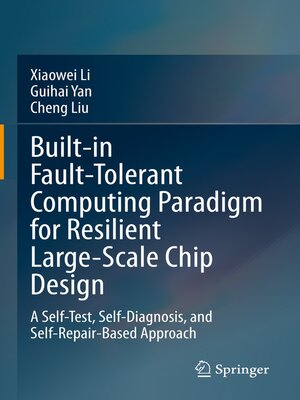Built-in Fault-Tolerant Computing Paradigm for Resilient Large-Scale Chip Design
ebook ∣ A Self-Test, Self-Diagnosis, and Self-Repair-Based Approach · Computer Science
By Xiaowei Li

Sign up to save your library
With an OverDrive account, you can save your favorite libraries for at-a-glance information about availability. Find out more about OverDrive accounts.
Find this title in Libby, the library reading app by OverDrive.



Search for a digital library with this title
Title found at these libraries:
| Library Name | Distance |
|---|---|
| Loading... |
This book is the outcome of extensive fault-tolerant computing research pursued at the State Key Lab of Processors, Institute of Computing Technology, Chinese Academy of Sciences over the past decade. The proposed built-in on-chip fault-tolerant computing paradigm has been verified in a broad range of scenarios, from small processors in satellite computers to large processors in HPCs. Hopefully, it will provide an alternative yet effective solution to the growing reliability challenges for large-scale VLSI designs.







